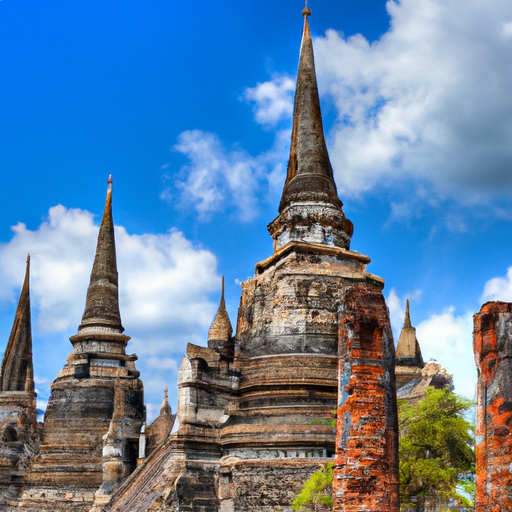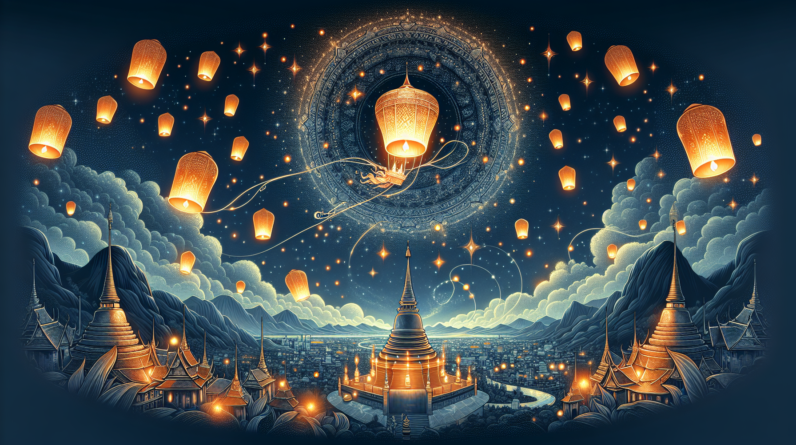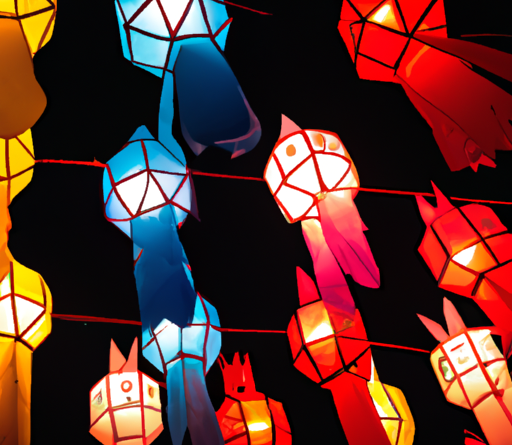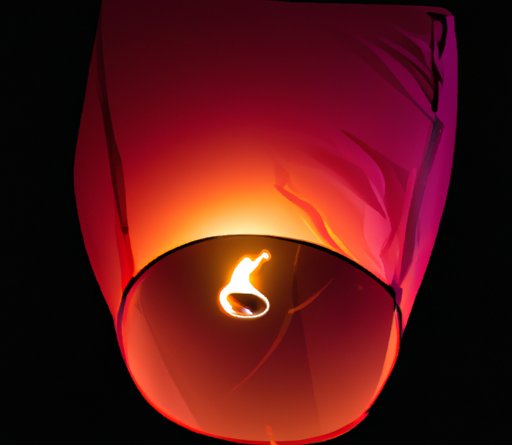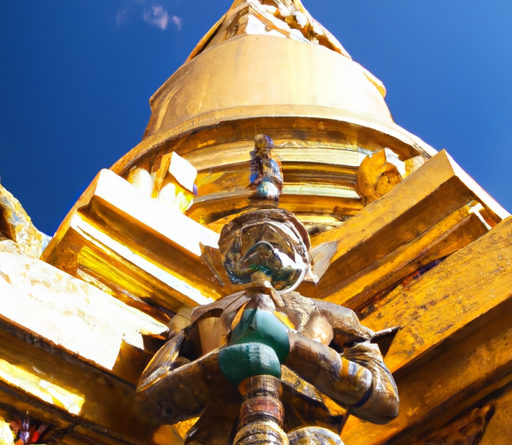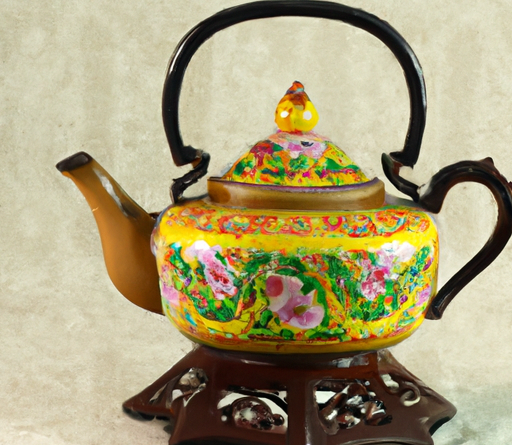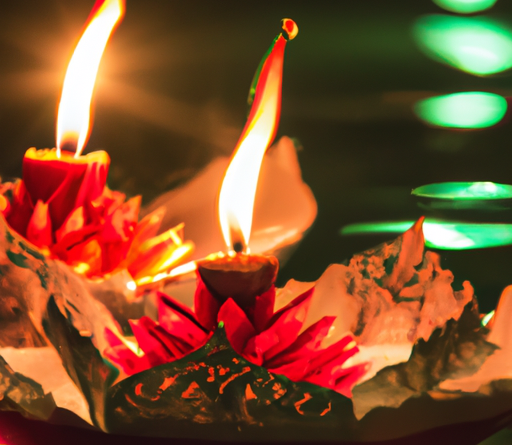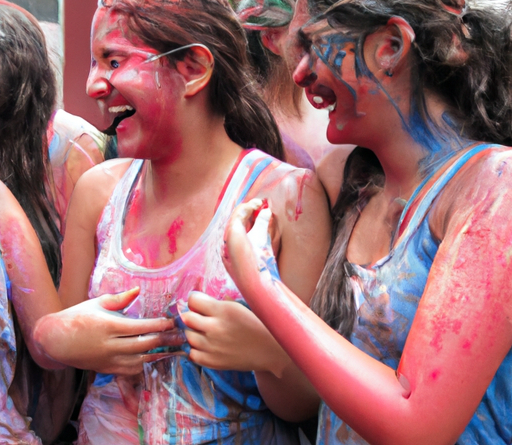
Imagine finding yourself in the vibrant streets of Thailand, filled with the aroma of delicious street food, the sound of lively music, and the colorful spectacle of traditional Thai festivals. As a tourist, it is heartbreaking to realize that you have missed out on experiencing these captivating cultural events. This regretful tale tells the story of a traveler who, in the immensity of Thailand’s beauty, wasn’t able to fully immerse themselves in the magic of Thai festivals.
Introduction to Thai Festivals
The significance of Thai festivals
Thai festivals are vibrant and lively celebrations that showcase the rich cultural heritage of Thailand. These festivals hold great significance in Thai society, as they bring people together to honor traditions, pay respects to religious beliefs, and celebrate the passage of time. Thai festivals also serve as a platform for locals to express their creativity, showcase their craftsmanship, and indulge in cultural practices that have been handed down through generations.
Popular Thai festivals
There are numerous Thai festivals that take place throughout the year, each with its own unique customs, traditions, and festivities. Some of the most popular festivals in Thailand include Songkran Festival, Loy Krathong, Yi Peng Lantern Festival, Phi Ta Khon Ghost Festival, Vegetarian Festival, Bun Bang Fai Rocket Festival, Bun Phawet, Boon Bang Fai Candle Festival, and the Phuket Vegetarian Festival. These festivals attract both locals and tourists alike, providing an opportunity to immerse themselves in the vibrant Thai culture and experience memorable moments.
The appeal for tourists
Thai festivals are not only significant to the local community but also offer a captivating experience for tourists from around the world. The festivities, colorful parades, elaborate decorations, and religious rituals provide a unique insight into Thai culture and traditions. By participating in these festivals, tourists can witness the genuine warmth and hospitality of the Thai people, sample traditional delicacies, and create lasting memories. Attending Thai festivals allows tourists to engage with the local community, understand their customs, and appreciate the diversity of Thai culture.
Songkran Festival – The Thai New Year
History and tradition
Songkran Festival is the Thai New Year celebration, which takes place from April 13 to 15 each year. This festival marks the end of the dry season and the beginning of the traditional Thai agricultural year. The origins of Songkran can be traced back to ancient Brahmanic traditions and reflect the influence of Indian culture in Thailand. This festival is deeply rooted in Buddhist customs and serves as a time for spiritual reflection, family reunions, and paying respects to elders.
Water fights and cleansing rituals
One of the most iconic aspects of the Songkran Festival is the water fights that take place in the streets throughout Thailand. Water is used to cleanse and purify, symbolizing the washing away of bad luck and misfortune. Locals and tourists alike engage in friendly water fights, armed with water guns and buckets, as a way to cool off during the hot summer days and embrace the joyous spirit of the festival. The water fights also foster a sense of unity and togetherness among participants.
Festivities in different regions
While the essence of the Songkran Festival remains the same across the country, each region in Thailand adds its own unique flair to the celebrations. In Bangkok, locals visit temples to make merit, attend cultural exhibitions, and participate in parades. Chiang Mai is famous for its elaborate processions and the Miss Songkran beauty pageant. In the southern regions, Songkran is celebrated with grand fireworks displays, traditional performances, and religious rituals. Traveling to different regions during Songkran allows you to experience the diversity of Thai culture and the various interpretations of this festive occasion.
Loy Krathong – Festival of Lights
Floating lanterns and river offerings
Loy Krathong is a mesmerizing Thai festival that takes place on the full moon night of the twelfth lunar month. The highlight of this festival is the release of decorative floating lanterns, known as “krathongs,” onto rivers, canals, and other bodies of water. These beautifully adorned lanterns are crafted from banana leaves, flowers, candles, and incense sticks. The act of releasing a krathong into the water symbolizes letting go of negativity, bad luck, and paying respects to the water goddess.
Spiritual beliefs and origins
Loy Krathong is deeply rooted in ancient Hindu traditions and Buddhist beliefs. It originated as a way to honor the river goddess, Mae Kong Ka, and seek forgiveness for any harm caused to the water. The festival also pays homage to Lord Buddha, as it is believed that the release of krathongs signifies the floating of one’s sins away, leading to spiritual purification. The flickering candles and incense sticks on the krathongs are believed to attract good fortune and blessings.
Celebrations across Thailand
Loy Krathong is celebrated throughout Thailand, with each region putting its own spin on the festivities. In Bangkok, the Chao Phraya River becomes a hive of activity, with locals and tourists releasing krathongs and witnessing an elaborate fireworks display. In Sukhothai, the ancient capital of Thailand, the festival is celebrated with a historical parade, traditional dance performances, and illuminating the ruins with candlelight. Other cities like Chiang Mai, Phuket, and Ayutthaya also host grand celebrations, where the beauty of Loy Krathong comes alive against the backdrop of majestic sights.
Yi Peng Lantern Festival
Magical release of sky lanterns
The Yi Peng Lantern Festival, also known as the Thai Lantern Festival, is a breathtaking celebration that takes place in conjunction with Loy Krathong. During this festival, thousands of sky lanterns, known as “khom loi,” are released into the night sky, creating a surreal spectacle of floating lights. The sight of the illuminated lanterns ascending into the heavens is believed to signify the letting go of worries and troubles, as well as bringing good luck and prosperity.
Spiritual significance and wishes
The Yi Peng Lantern Festival holds great spiritual significance for the Thai people. It is a time to make wishes and offer prayers for a better future. The act of releasing the lanterns is believed to carry one’s wishes and hopes to the heavens, where they will be granted. The beauty and tranquility of this festival make it a cherished event for locals and an enchanting experience for tourists.
Chiang Mai’s iconic celebration
Chiang Mai is the epicenter of the Yi Peng Lantern Festival. The city’s sky lantern release is the largest and most renowned in Thailand. Thousands of people gather at various locations around the city to release their lanterns simultaneously, creating an awe-inspiring display of floating lights. The most iconic venue for the lantern release is Mae Jo University, where the sky is transformed into a mesmerizing sea of lanterns. Alongside the lantern release, Chiang Mai also hosts cultural performances, traditional parades, and beauty pageants, making it a truly memorable experience.
Phi Ta Khon – Ghost Festival
Colorful masks and ghostly parades
Phi Ta Khon, also known as the Ghost Festival, is a vibrant and unique celebration that takes place in the Dan Sai district of Loei Province. This festival features lively parades, traditional music, dance performances, and the iconic Phi Ta Khon masks. The colorful masks, handcrafted from rice husks and painted in vivid hues, depict human-like ghosts and spirits. Locals participate in the parades, wearing these masks and engaging in boisterous dances and symbolic rituals.
Local legends and folklore
Phi Ta Khon is steeped in local legends and folklore. According to one legend, a long-lost prince returned to his village, causing great excitement and joy among the locals. The festival is said to represent the awakening of the prince, with the masks symbolizing the spirits that have come to celebrate his return. The dances and rituals performed during Phi Ta Khon are believed to bring good luck and prosperity to the community.
Festive highlights and activities
Phi Ta Khon offers a range of lively activities for both locals and visitors to enjoy. The festival kicks off with a grand parade, featuring locals dressed in vibrant costumes and masks, enthusiastically dancing through the streets. The procession is accompanied by traditional music, creating a lively and joyful atmosphere. Other highlights of the festival include buffalo racing, hobo rice eating competition, and various cultural performances. Participating in Phi Ta Khon allows you to experience the rich folklore and cultural traditions of the Dan Sai community.
Vegetarian Festival
Purification and fasting period
The Vegetarian Festival, also known as Nine Emperor Gods Festival, is an auspicious occasion celebrated by the Chinese community in Thailand. This festival is characterized by a period of strict vegetarianism, where devotees refrain from consuming any animal products for nine days. The vegetarian diet is believed to purify the body and mind, as well as offer protection against evil spirits and ill health. The festival is observed with great devotion and adherence to rituals and customs.
Piercing rituals and street processions
One of the most captivating aspects of the Vegetarian Festival is the piercing rituals that take place during street processions. Devotees, known as “ma song,” participate in acts of self-mortification to demonstrate their faith and seek blessings. These acts involve piercing the body with skewers, swords, and other sharp objects without experiencing pain or drawing blood. The belief is that during this state of trance, the gods will protect and bestow blessings upon the participants.
Embracing vegetarian cuisine
The Vegetarian Festival is not only a religious observance but also an opportunity to savor delectable vegetarian cuisine. During this time, numerous stalls and restaurants in Chinese communities across Thailand offer a wide variety of vegetarian dishes. From stir-fried vegetables to mock meats, these culinary delights cater to the varying tastes and preferences of those partaking in the festival. Sampling the vegetarian delights adds an extra dimension to the cultural experience and allows you to appreciate the creativity and flavors of Chinese-inspired vegetarian cuisine.
Bun Bang Fai – Rocket Festival
Rocket building and launching competition
Bun Bang Fai, also known as the Rocket Festival, is a lively tradition celebrated in northeastern Thailand, particularly in the provinces of Yasothon, Roi Et, and Udon Thani. This festival involves the construction and launching of homemade rockets, which are aimed at the sky as a plea for rain and fertility for the upcoming rice planting season. The rockets are made from bamboo, filled with a mixture of gunpowder and other combustible materials, and come in various sizes and designs.
Supplication for rain and fertility
The Rocket Festival is deeply rooted in ancient agricultural beliefs and superstitions. It is believed that the loud noise and smoke produced by the rockets will attract the attention of the rain god, Phaya Thaen, and convince him to send rains that are essential for a successful rice harvest. The festival is also associated with fertility rites, as the phallic-shaped rockets symbolize male potency and the need for abundant crops.
Safety precautions and exhilarating spectacle
The Rocket Festival is a thrilling event that combines exhilarating spectacle with cultural traditions. The launching of the rockets is accompanied by music, dancing, and lively processions. Before the rocket launches, the participants perform rituals and seek blessings from the local monks. It is important to note that safety precautions are taken seriously during the festival, with designated areas for the rockets to be launched and strict regulations on their size and materials. Witnessing the rockets soaring into the sky is a truly breathtaking experience and a testament to the vibrant traditions of northeastern Thailand.
Bun Phawet – Festival of the Tenth Lunar Month
Offerings for ancestors and wandering spirits
Bun Phawet, also known as the Festival of the Tenth Lunar Month, is a significant event observed in Thailand, particularly in rural communities. During this festival, offerings of food, drinks, and other necessities are made to honor ancestors and wandering spirits that are believed to visit the human realm. The festival serves as a way to express gratitude to ancestors, seek their blessings, and ensure their well-being in the afterlife.
Temple ceremonies and merit-making
Central to the Bun Phawet festival are temple ceremonies that are conducted to gain merit and aid the spirits of the deceased. Monks chant religious scriptures, perform blessings, and conduct rituals to guide wandering spirits towards peace and liberation. Devotees participate in the ceremonies, make offerings, and perform acts of merit-making, such as releasing caged birds or setting free captive animals. The festival emphasizes the importance of compassion, generosity, and the power of collective prayers.
Superstitions and rituals
Bun Phawet is steeped in superstitions and folk beliefs that guide the rituals and traditions associated with the festival. It is believed that during the tenth lunar month, the gates of both heaven and hell are open, allowing spirits to wander freely. To appease these spirits, people light candles and incense, offer food and drinks, hang red or white cloth outside their homes, and perform rituals to cleanse the house and invite good fortune. The intricate blend of religiosity and folk customs during Bun Phawet reflects the spiritual beliefs of rural communities in Thailand.
Boon Bang Fai – Candle Festival
Candle-decorated floats and cultural parade
Boon Bang Fai, also known as the Candle Festival, is a charming event celebrated in various towns and villages across northeastern Thailand. The festival showcases beautifully decorated floats adorned with intricate patterns made from wax candles. These floats are paraded through the streets as offerings to the gods, marking the beginning of the rainy season. The candle-decorated floats are accompanied by music, dance performances, traditional costumes, and other cultural displays.
Buddhist blessings and spiritual intentions
The Candle Festival is deeply rooted in Buddhism and serves as a way to make merit and seek blessings for a bountiful harvest. The candles that adorn the floats symbolize the light of knowledge and wisdom, with the intention of dispelling darkness and ignorance. The festival also provides an opportunity for locals to express their spiritual devotion, showcase their artistic skills, and strengthen community ties.
Cultural heritage preservation
The Candle Festival not only celebrates religious traditions but also plays a significant role in preserving and promoting cultural heritage. The intricate designs and craftsmanship of the candle-decorated floats are passed down through generations, reflecting the artistic talents and creativity of the local communities. The festival serves as a platform for young artisans to showcase their skills and learn from their elders, ensuring the continuity of this vibrant cultural tradition.
Phuket Vegetarian Festival
Chinese-inspired vegetarian festival
The Phuket Vegetarian Festival is a unique celebration that takes place in Phuket, where the Chinese community observes a strict vegetarian diet for nine days. This festival is influenced by the Taoist concept of purifying the body and mind through the consumption of vegetarian food. The participants believe that by adhering to this vegetarian practice, they will receive good fortune, protection against evil spirits, and ensure the well-being of the community.
Firewalking and self-mortification rituals
One of the most captivating aspects of the Phuket Vegetarian Festival is the firewalking and self-mortification rituals. Devotees, known as “ma song,” engage in acts of self-penetration using sharp objects, such as swords, skewers, and even bicycles. These acts serve as demonstrations of their faith and devotion, as they believe that during this state of trance, they will be protected from pain and harm. The firewalking ritual is another remarkable spectacle, where participants walk barefoot over a bed of burning coals to cleanse themselves and show their dedication.
Processions and street performances
The Phuket Vegetarian Festival is characterized by vibrant street processions and cultural performances. The parades feature devotees dressed in white, carrying incense, and surrounded by a lively entourage of traditional music, drums, and dance performances. The atmosphere is electrifying as spectators witness the awe-inspiring displays of faith, the hypnotic rhythmic beats, and the elaborate costumes. The festival also offers a wide array of vegetarian dishes prepared by local vendors, allowing visitors to indulge in the unique flavors of Chinese-inspired vegetarian cuisine.
In conclusion, Thai festivals offer a captivating glimpse into the rich cultural heritage and traditions of Thailand. From the water fights of the Songkran Festival to the magical release of sky lanterns during Yi Peng Lantern Festival, these festivals provide unique and memorable experiences for both locals and tourists. Whether it’s the vibrant parades of Loy Krathong or the ghostly masks of Phi Ta Khon, each festival has its own unique customs and traditions that showcase the beauty and diversity of Thai culture. Attending these festivals allows you to immerse yourself in the warmth and hospitality of the Thai people, sample traditional delicacies, and create lasting memories. So, don’t miss out on the opportunity to be a part of these magical celebrations and experience the true essence of Thailand.
